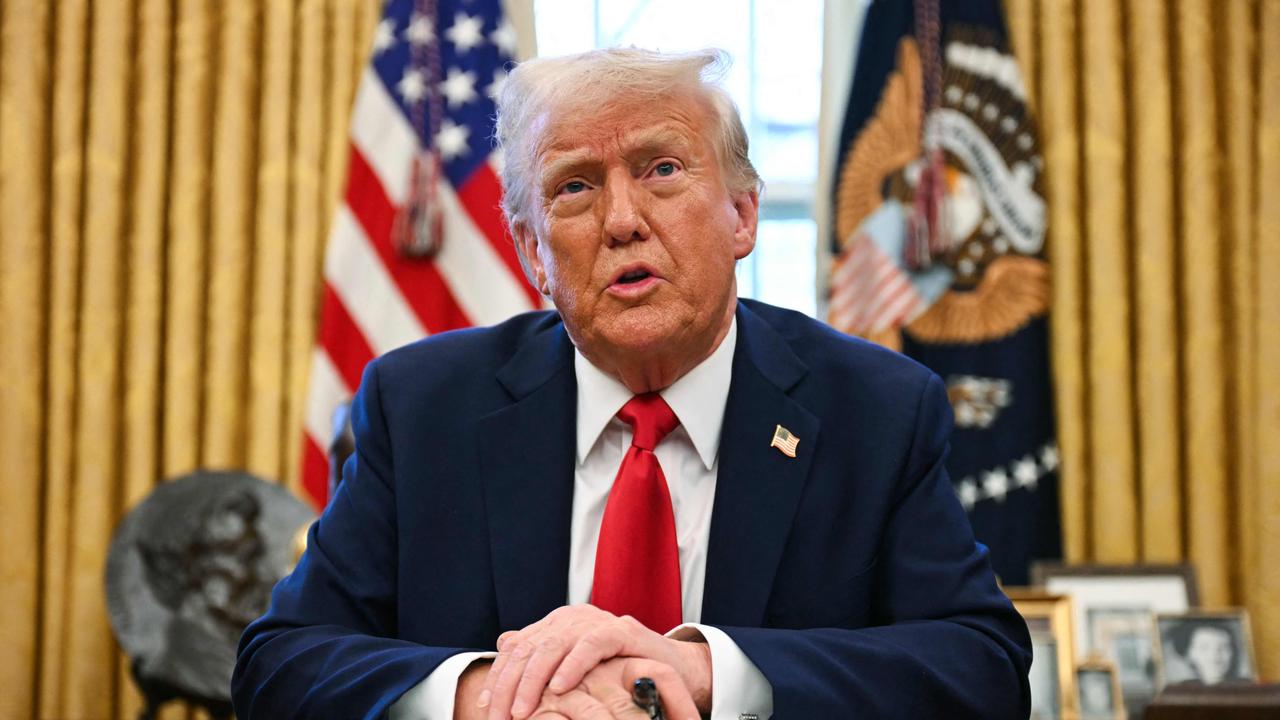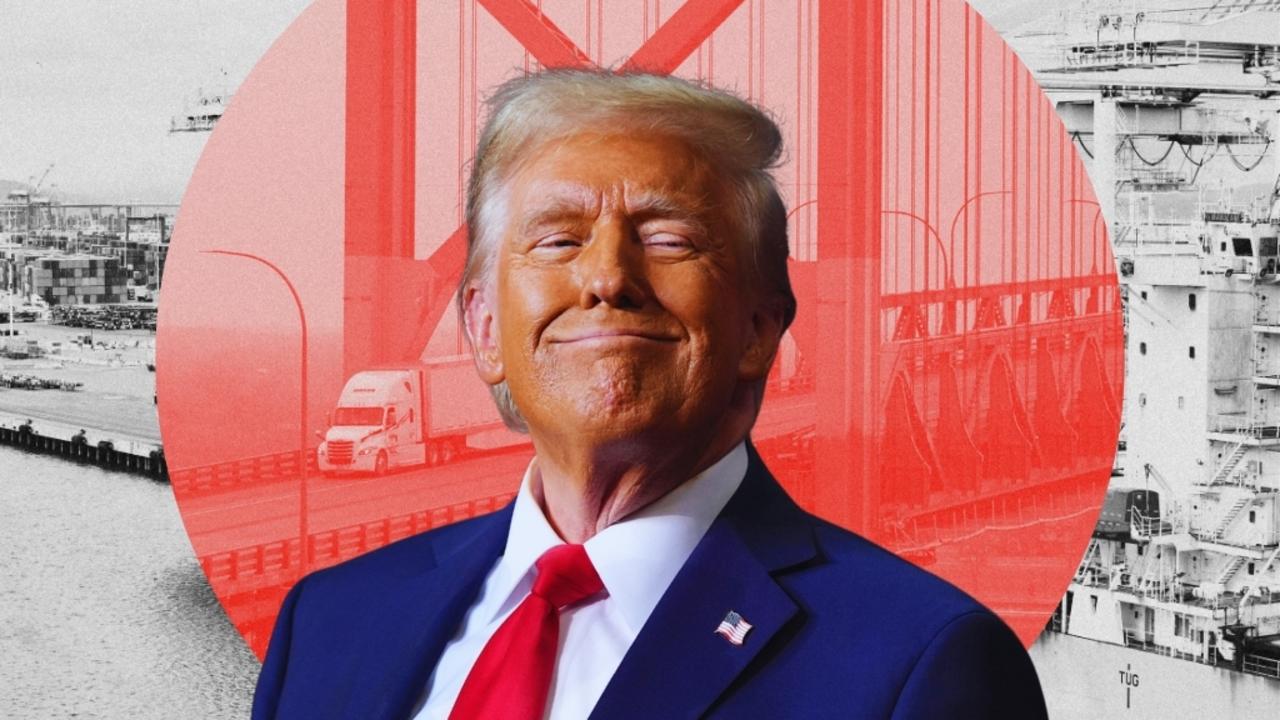Hedge fund Valiant Capital saw coronavirus risks early
Chris Hansen’s Valiant Capital had an early conviction COVID-19 would cause economic havoc. Now it’s up 36pc.

Chris Hansen saw it coming.
Mr Hansen, who runs San Francisco hedge fund Valiant Capital Management, had an early conviction the novel coronavirus would wreak havoc on the global economy.
Mr Hansen and his team homed in early on the risks the virus posed and placed wagers accordingly, said people familiar with the firm. In late January, Valiant boosted its bet against stock indexes as it became more concerned about the virus.
In February, Valiant started placing bets against, or shorting, levered companies it viewed as likely to be hurt from an economic slowdown caused by the virus.
As the market plummeted, Valiant posted gains on those bets, including some on cruise lines, international airlines and travel companies.
By early March, the fund had begun shorting less obvious candidates, believing those with weak balance sheets and companies it viewed as fraudulent would be caught out in a prolonged slump.
By the end of March, Valiant was up 36 per cent for the year before fees, said people familiar with the firm. The return stands in contrast to a 19.6 per cent drop in the S&P 500 and a 21.3 per cent decline in the MSCI All World Index, a broad global index measuring the performance of stocks around the world.
“Protecting capital from downturns has always been a core part of our strategy, and once again it is nice to see it pay off when it matters the most,” Mr Hansen wrote in a March 12 investor letter. That letter told investors the fund was up 25 per cent before fees and didn’t elaborate on how Valiant had scored those gains.
In addition to its stock bets, Valiant also notched gains on credit protection on global investment-grade and high-yield bond indexes it had bought in mid-February that became more valuable as the likelihood of corporate defaults rose, one of the people said. The fund had closed half of that hedge a month later.
The returns for Valiant mark some of the best returns in the hedge-fund industry through the market tumult to date.
A low-profile investor who is known on Wall Street for short selling and investing in private companies, Mr Hansen is better known in some quarters for his yearslong effort to bring a professional basketball team to his hometown of Seattle.
He was a blunt messenger when it came to the coronavirus. At a Jackson Hole, Wyoming, investment conference on March 5, he told an audience of wealthy families and private investors to go to cash, stock up on medication and prepare for the pandemic to fundamentally alter life.
“He was speaking to an audience of 80 or 90 people and said that 10 to 20 of us will likely contract the virus and several of us will, statistically speaking, die,” said Matthew Lusins, a partner at real estate private-equity firm Convergence Investments, which organised the charitable conference.
Mr Lusins said Mr Hansen asked for a list of international attendees before agreeing to speak at the conference and didn’t mingle afterwards.
Shorting companies and hedging portfolios became unfashionable over the last decade as low interest rates propelled stock markets to historic highs. While hedge funds betting on and against stocks aren’t expected to keep up with a roaring bull market, sustained periods of underperformance can lead to investor frustration and defections.
Valiant, founded by Mr Hansen in mid-2008 after he left hedge-fund firm Blue Ridge Capital, wasn’t immune to the pressure to keep pace.
The fund had notched gains of 8.2 per cent and 13.1 per cent in 2008 and 2011, respectively, and made money 73 per cent of the months the S&P was down, according to investor documents. But, its investor base had shrunk as its focus on shorting companies it believed were fraudulent, or deceived regulators and shareholders, hurt returns. Valiant also holds the stock of roughly two dozen companies at any given time and holds its biggest positions for an average of more than five years. In separate structures, it invests in private companies, mainly in the US and India.
But the fund continued to short individual stocks and pay for hedges -- moves that turned out to be fortuitous in the market tumult this year.
When stock markets started their rollercoaster ride in late February, the $US1.4 billion stock hedge fund also began profiting on bets it had made against companies it viewed as fraudulent or fragile months or, in some cases, years ago. The firm also has cashed in put options, contracts that give the owner the right to sell shares by a certain date at a specific price, it had bought on the cheap against stock indexes in the US and India, according to people familiar with the firm.
Valiant bought additional puts on stock indexes starting in late January as it became more concerned about the virus, said a person familiar with the firm. That move pushed the size of its index hedges to a historic high. At their peak, the notional value of the options contracts were between $US1 billion and $US2 billion -- a hedge equivalent to the size of Valiant’s portfolio.
China’s mass quarantining of Wuhan starting on January 23 and later that month of the Hubei province, where the coronavirus first emerged, was a key signal that the virus was a serious threat, one person familiar with the fund said. The fund also was influenced by Harvard epidemiologist Marc Lipsitch and other healthcare experts, who were sounding the alarm as early as January.
The stock market’s blithe climb upward even as China shut down and the virus spread to South Korea and Italy recalled other moments of extreme dissonance to the team at Valiant, such as the housing market crisis or the internet bubble, the people familiar with the firm said.
Mr Hansen in recent weeks has told investors Valiant has little edge on the virus now that it has reshaped daily life and the economy so dramatically.
Wall Street Journal


